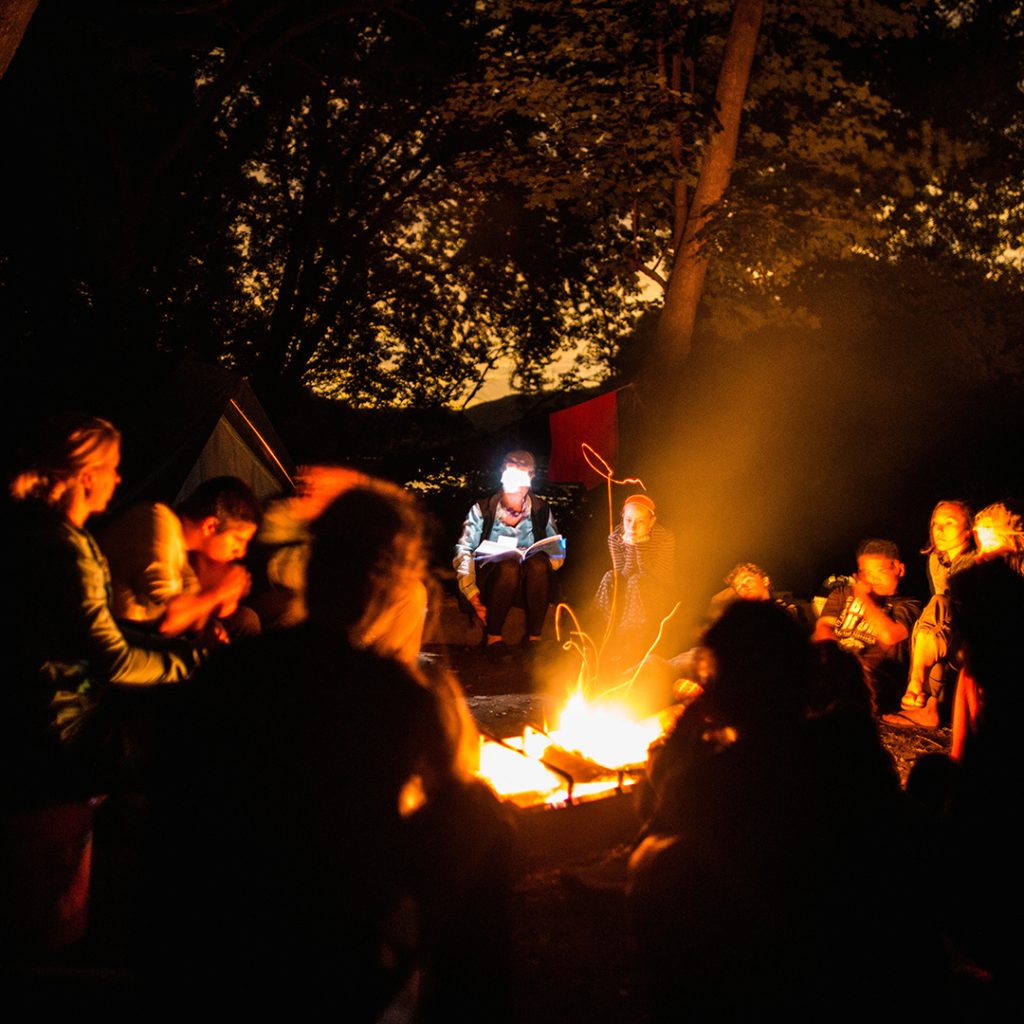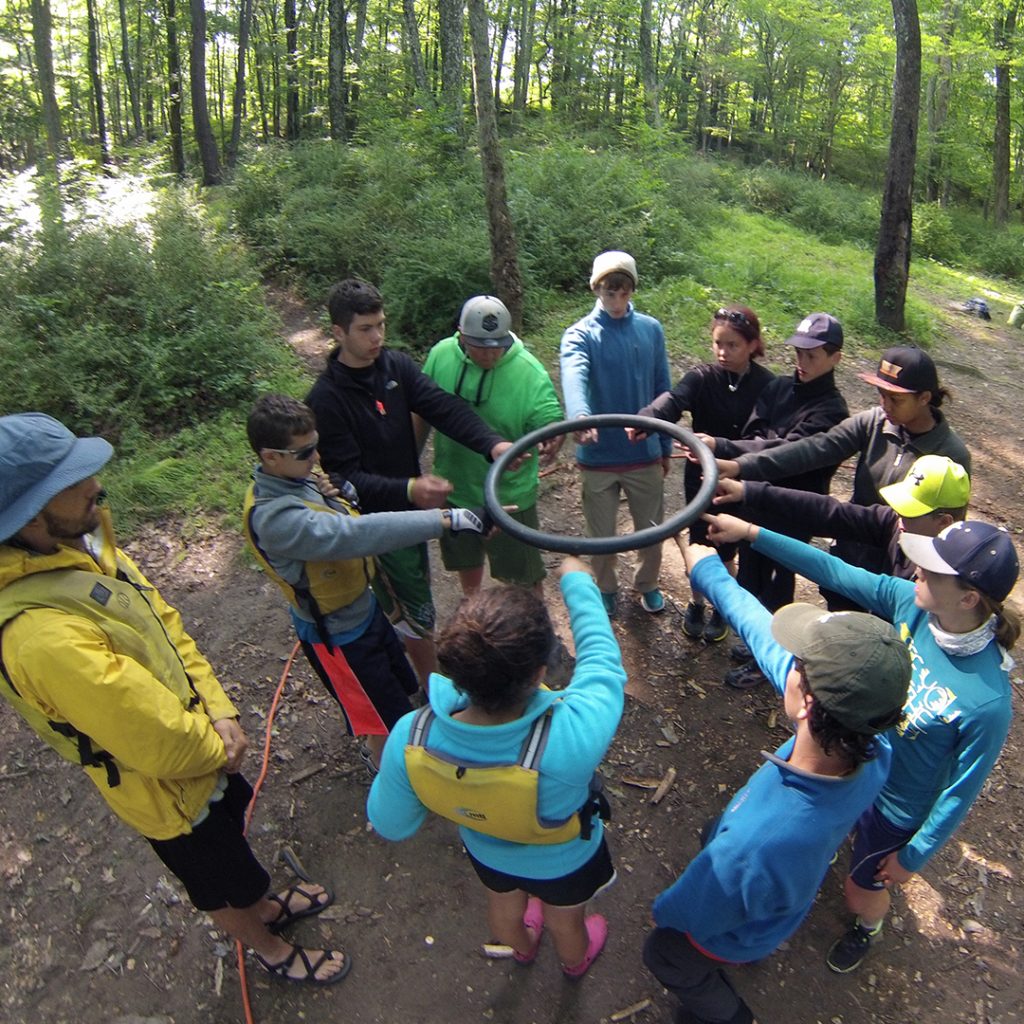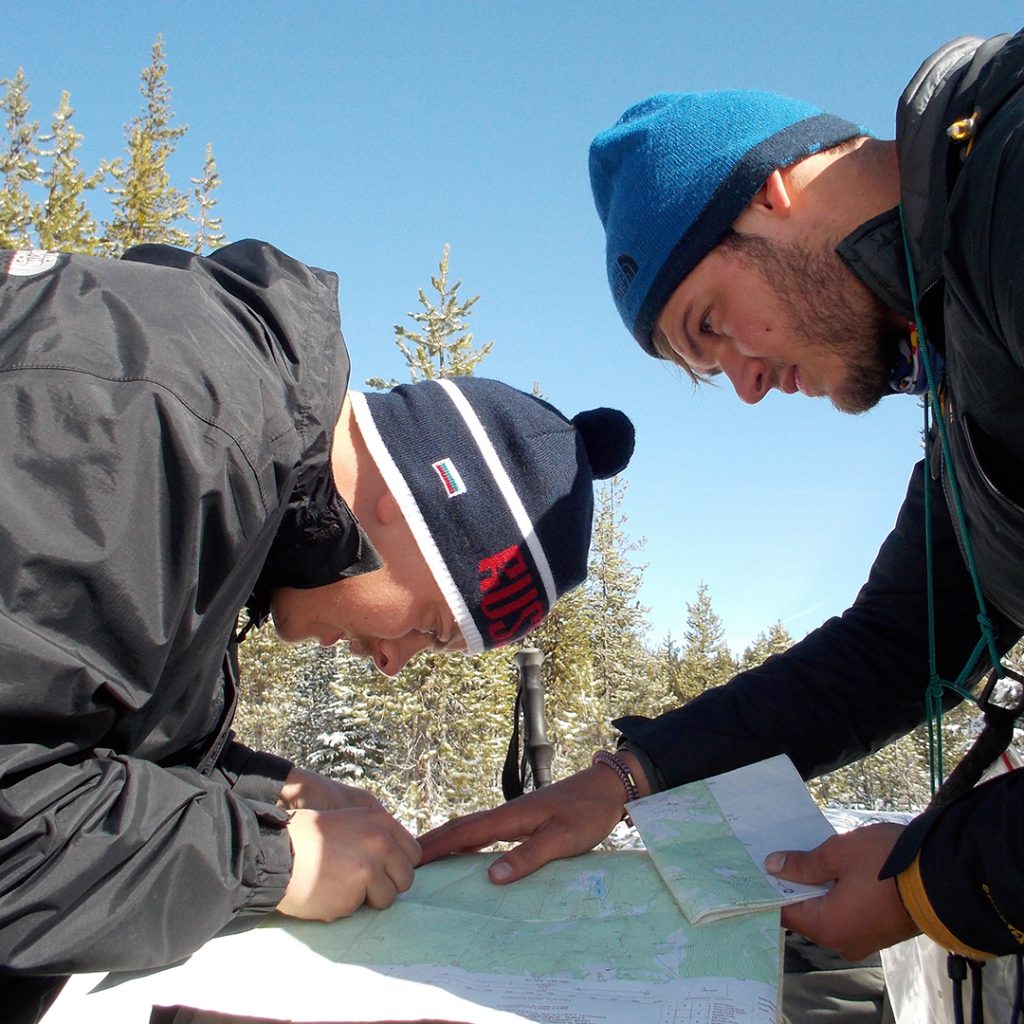The campsite the team planned on reaching for the evening is already occupied. As tents and tarps come into view, team members begin to grumble and complain. The team needs to look at their map and find a route to the next campsite, eat a snack, rally morale and keep traveling. Unexpected circumstances like this are part of the recipe for challenge and growth on an Outward Bound course.
For this team, they’re somewhere on the second of three weeks of their expedition, which means they are capable of providing their own leadership to turn their grumbles into forward momentum. The job of being the team’s designated leader rotates each day, along with other responsibilities like cooking and washing the dishes. As Instructors, we’ve taught leadership lessons as well as modeled various styles of leadership. Each student knows they are capable of being a leader regardless of their specific job title for the day. We gradually step back as Instructors, allowing each team member the opportunity to hone their leadership skills while we coach and give feedback throughout each day.
Today’s leader is up to the task. While passing around a bag of trail mix, she reminds the team to stay positive. It will make other people feel better, she says, and it will make you feel better too. Being negative is just wasting energy we could use to get to the campsite. I couldn’t have said it better myself.
We pass two more occupied campsites before finding one to make our home for the night. As we sit around the fire after a late dinner and discuss the day, a team member points out that the group spent a long time taking down and packing up their gear in the morning. The slow start was a factor in their longer-than-anticipated day. The leader accepts this feedback graciously, and the team makes a plan to be faster in the morning. Morning will bring another student trying to rally their own peers to get up, work hard and stay true to their words.

Students are shown gathered around a campfire discussing their day on an expedition. Photo by Ryan Harris.
Each action in a small group is easily felt among the others, and each action in the wilderness has nearly immediate effects. Thus, the small group in the wilderness becomes an ideal classroom that requires leadership, while giving the team many chances to experiment under similar circumstances day after day.
Students arrive to Outward Bound with a range of understandings of themselves as a leader. Young teenagers may have experienced few opportunities to practice leadership other than having helped raise siblings. Adult students may hold positions of management in their workplace. Self-leadership is the starting point for many students as they learn the ins and outs of life in the woods. Self-leadership can mean being organized, packing your gear efficiently and knowing where everything is. It can mean taking care of yourself by wearing sunscreen and drinking water to maintain your energy level throughout the day. It can mean asking for help.
We also teach followership. If everyone chose to practice their leadership skills at the same time, it would be chaos. We teach the team to give feedback that is specific and future-focused. “How can you be better?” rather than “What went wrong?” We challenge some students to step back and others to step up. It is everyone’s job to make sure the team avoids always turning to the same person to make decisions. We teach decision-making models. We teach leadership like we teach canoe strokes – a skill to be learned, then practiced. Few of us are born natural leaders and we improve with practice and feedback.

Servant leadership can be another layer of learning. From its founding by Kurt Hahn, Outward Bound has been a School that places compassion above all in its core values. During our expedition, this is evident in the process being more important than the product each day. We help our leaders reframe their goals and ideas of success, from reaching a particular destination to taking care of the team and leading by example. The expedition is easy to measure and describe in miles traveled and obstacles overcome, but how each of those things are accomplished and the process are what makes it an Outward Bound course.
We train our students, and ourselves, to find the strengths in each team member and to build those. We teach that everyone is capable of being a leader, and that leadership can look like many things beyond the eloquent extravert, giving speeches and telling people what to do. One student may lead by being the first out of the tent every morning, and one by gathering extra firewood and baking brownies over the fire. One’s voice is hardly ever heard, but they are constantly checking in with each individual, gathering information and offering advice.

The gift of the wilderness is that it’s easy to find ways to care for each other. A leader can stand in the middle of the campsite and see six people who all could use help – tying knots, breaking branches for the fire, chopping onions or simply telling a joke to a homesick peer. This is perhaps the greatest challenge of transference for our student leaders – to find equally needed and powerful ways to help each other in our communities outside of the wilderness, to establish a common purpose and help each other toward it. We practice it during expeditions because it’s easy there. There’s nothing easy about carrying heavy packs or building a fire in the rain, but it’s almost impossible not to help each other, as we train for those more difficult leadership roles waiting for us at the trip’s end.
About the Author
Renee Igo was an Outward Bound student at age 15, and has been instructing wilderness expeditions for the Voyageur Outward Bound School for the past eight years. When not instructing, she holds a variety of other teaching positions and raises sheep in Maine.
OTHER POSTS YOU MAY LIKE
Read More
Read More
Read More




